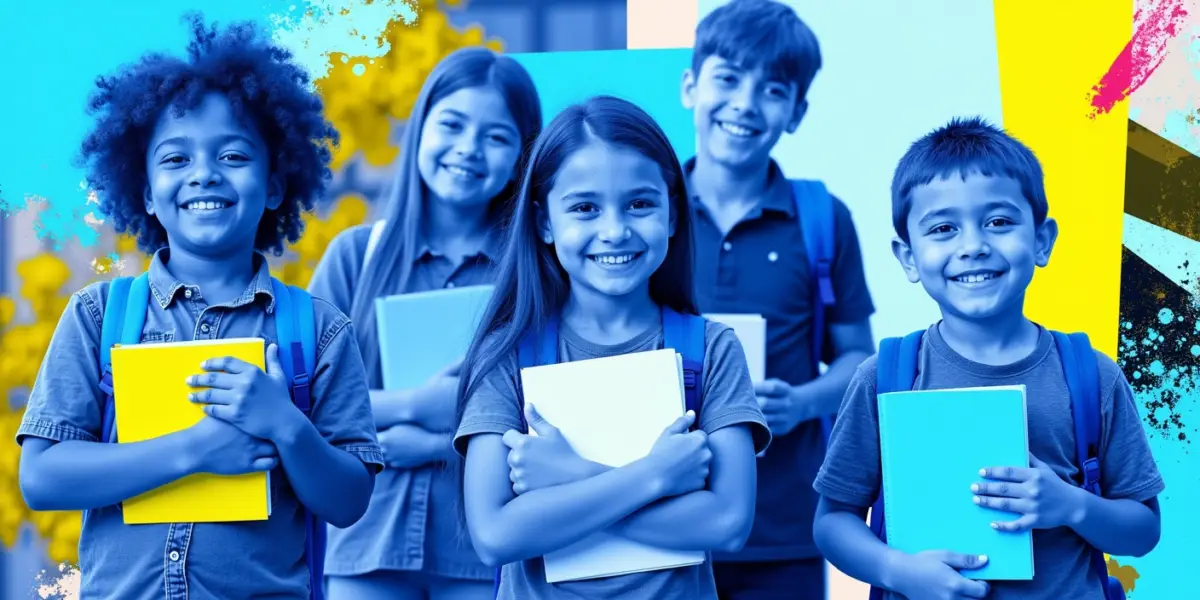Life Skills Workshops at Alpha School: Creating Future-Ready Students
MacKenzie Price
on
April 1, 2025
“When will I ever use this?” That refrain has been uttered by students for decades. And to an extent, they have a point. Traditionally, students learn math but not financial literacy. They learn English language arts, but rarely do they learn the finer points of negotiation and debate.
But skills like the ones mentioned above — plus others such as grit, sociability, teamwork, critical thinking, problem-solving, and confidence – are invaluable for navigating both personal and professional life. In fact, many of these skills are now considered so important, they’re referred to as “power skills.”
In traditional schools, teachers try to pepper in those skills during academic lessons or cultivate them for an hour or so in after-school activities. But with the 2 Hour Learning model used for academics at our flagship school, Alpha School, there’s a full four hours in the afternoon for workshops that build essential life skills.
Let’s take a look at four examples of these life skills workshops.
1. The “Better Together” Workshop
Designed for students in kindergarten and first grade, this life skills workshop teaches participants how to play games fairly, how not to give up or cry when they’re losing, and to cheer on their classmates. Those children begin to acquire essential life skills such as getting along with others, grit, and self-confidence, and self-directed learning.
2. The Triathlon Student Workshop
Students in second through fourth grade take part in a triathlon that requires them to solve a Rubik’s Cube, juggle three items for 30 seconds, and run half a mile. It may sound a little weird, but it’s all about developing grit and a growth mindset.
A lot of the kids initially believe that there’s no way for them to accomplish one or more of those tasks. But over the course of six weeks, we help them figure out the algorithm that allows them to solve the Rubik’s Cube. They also find that when they run a little every day, they build their endurance and speed.
At the end of the workshop, students go through a “Test to Pass,” where they demonstrate their new abilities. The test confirms that they’ve been able to stick with something that’s hard and keep going when they’re frustrated — essential life skills that will serve them well in any field.
3. The “HypeSquad” Workshop
One of Alpha’s most fun and engaging life skills workshops for fifth and sixth graders emphasizes teamwork. Typically, teamwork is taught through team sports, but in this workshop, every student is assigned a classmate as their “hype man.” The hype man is ready to extol the accomplishments and great qualities of the student at a moment’s notice. During their daily morning and closing meetings, students shout out the great things their classmates have accomplished.
In addition to teaching teamwork, HypeSquad is one of the student workshops that specifically focuses on developing an uplifting and positive culture among Alpha students. The kids learn that instead of negatively labeling each other and forming cliques, they can find the uniqueness and value in everyone. It also lays the foundation for ice-breaking and building friendships because there is no better way to engage with new people than by learning about them and then hyping them up.
4. High School Social Scene Prep Workshop
Middle schoolers often say that the thing that scares them most about high school is the social scene. In one of Alpha’s life skills workshops, students at the middle school level learn how to crush the social scene in healthy and positive ways.
The student workshop is divided into three stages. In the first stage, students practice navigating friendships, handling social pressure, and building strong, positive relationships with their classmates. In the second stage, the kids head over to the friendly Alpha High School lunch table to practice their social skills. Stage three involves visiting another school’s cafeteria. By the end of this workshop, kids are as confident in their social capabilities as they are in their academics.
Life Skills Workshops Increase Students’ Confidence and Adaptability
Those are just a few examples of the workshops that Alpha students attend. There are dozens more workshops at every grade level, ranging from athletics to financial literacy, entrepreneurship, public speaking and communication, community engagement, and even Japanese Ikigai. The school retains workshops that spark students’ interest and replaces the less engaging workshops with fresh options.
Participating in these workshops gives Alpha’s students skills they carry forward into college and careers:
- Overcoming physical and academic challenges teaches them resilience.
- Starting businesses or leading team projects fosters their initiative.
- Early exposure to financial literacy helps students make smart financial choices in the future.
- Practicing public speaking and communication skills gives students the confidence to speak up, share ideas, lead discussions, and conduct presentations.
- Learning how to work with others, handle setbacks, and support teammates sets students up for career and life success.
Giving Students a Solid Foundation for the Future
Alpha School proves that learning can be faster, smarter, and more meaningful. By the time students graduate from Alpha, they don’t just believe they are limitless; they have the skills to prove it.

